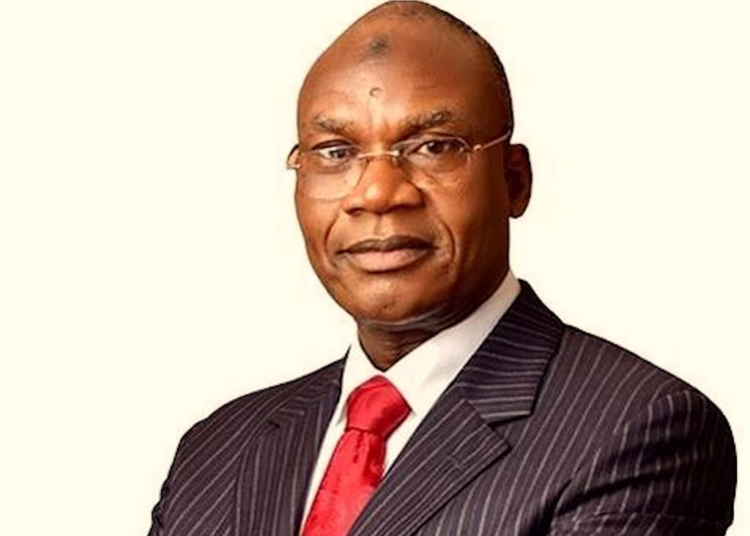On October 5, 2023, Nigerian teachers will join their counterparts across the world to celebrate this year’s World Teachers’ Day.
The event, marked since 1994 was introduced to commemorate the anniversary of the signing of the 1966 International Labour Organisation/United Nations Educational, Scientific and Cultural Organisation (ILO/UNESCO) recommendation concerning the status of teachers.
In 2023, World Teachers’ Day celebrations will focus on the theme “The teachers we need for the education we want: The global imperative to reverse the teacher shortage.”
Sadly, in Nigeria, the alarming shortfall of qualified teachers in public primary and secondary schools across the country was highlighted recently by the Nigerian Union of Teachers, while bemoaning the failure of state governments to correct the anomaly.
The NUT National President, Titus Amba, lamented that teachers leaving the service in many states were not being replaced, while the quality of teaching was fast declining.
This, according to him, calls for urgent and creative action by the state governments to lay a solid foundation for national development by giving priority to the education system.
Moreover, over the years, various stakeholders have complained of both the acute shortage of instructors and the quality of those in service.
However, the 2022 Universal Basic Education Commission National Personnel Audit breakdown showed that there were 354,651 teachers for 7.2 million students in pre-primary schools; 915,593 teachers for 32 million students in primary schools; and 416,291 teachers for eight million students in junior secondary schools.
The number of registered teachers on the Teachers Registration Council of Nigeria database by 2023 was 2.3 million.
Despite government efforts towards creating a conducive environment for teachers, the profession is still faced with some challenges.
It will be recalled that in 2020, while commemorating the World Teachers Day, the then president of Nigeria, Buhari approved a special salary scale and a special pension scheme for teachers in the country.
Besides, the president included building low-cost houses for teachers in rural areas, sponsorship to at least one refresher training per annum to benchmark best practices for improved teaching and learning and retirement age for teachers.
He also promised an expansion of the annual Presidential Teachers and Schools Awards and payment of stipends to Bachelor of Education students and automatic employment after graduation.
But LEADERSHIP gathered that only the elongation of service has kick-started at the centre and to an extent at the level of some states
National President of Nigeria Union of Teachers (NUT), Comrade Audu Titus Amba, said the acute shortage of teachers experienced in many schools, especially in the basic education sub-sector should be given due attention by all tiers of government
According to him, “A good number of state governments are yet to key into the new retirement for teachers and we have written to such state governments to use the world teachers’ day to make pronouncements and other incentives,” he said.
To the minister, he said: “Up till now, none of the other incentives have gotten across to teeming teachers of Nigeria but with the commitment you mentioned that the current administration teachers will be central in welfare and others, we want to believe that you will use your good offices to make sure that those incentives that are attached to the pronouncement for Nigeria teachers are implemented.
Meanwhile, the Minister of Education, Professor Tahir Mamman, has vowed to wield a big stick against top officials and principals of schools rejecting posting to teach in the classrooms after their administrative duties, in line with the recently approved extension of retirement age for teachers and school administrators from 60 to 65 years and 40 years respective.
While briefing newsmen in Abuja on the activities planned for the Year 2023 World Teachers Day Celebrations, which would culminate in a grand finale on Thursday, 5th October 2023, the Minister explained that rationale behind the extension of retirement age from 60 to 65 years was for the experienced hands to go back to classroom to teach and mentor the younger ones even after serving in various administrative positions whether in the Ministry or in schools.
“But what we are hearing is that some people are resisting going back to the classroom. All those who are in that category, where the situation warrants, should happily go back to the classroom if they don’t. The ministry will wield the big stick because it is not right.”
He added, “This is where you started and earned your livelihood, I thought it is fun to go back to the classroom at that age and life and participate in mentoring of the younger ones, so it is not a forum for someone to refuse going to the classroom.”
He insisted that the best teachers in the university system are the older ones.
We’ve got the edge. Get real-time reports, breaking scoops, and exclusive angles delivered straight to your phone. Don’t settle for stale news. Join LEADERSHIP NEWS on WhatsApp for 24/7 updates →
Join Our WhatsApp Channel










